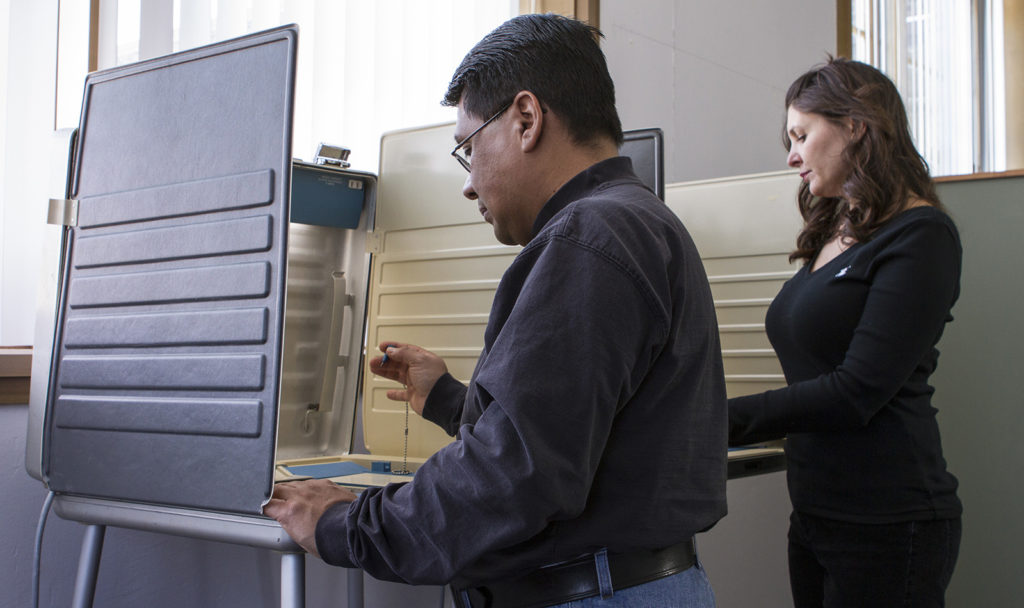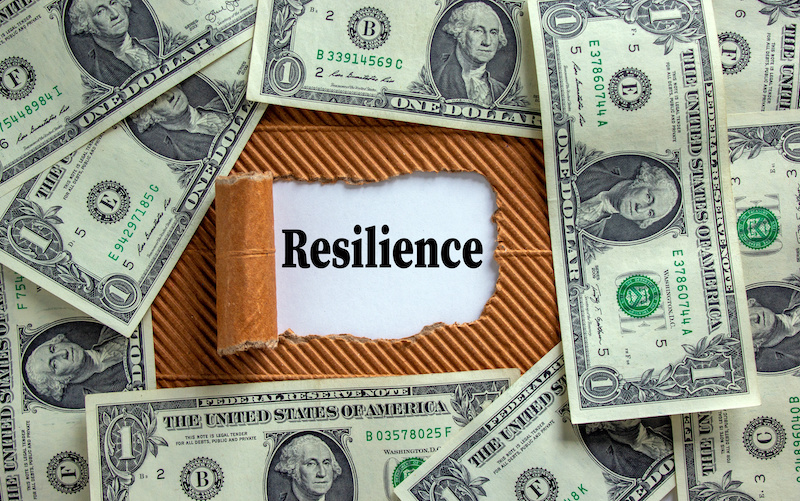Government by Referendum Does Not Work
Jennifer ButtrickMarch 11, 2019

Man and woman voting by Burlingham/Adobe Stock
When voters are unhappy with decisions made by their elected officials or when elected officials are unhappy with the direction their colleagues take on an issue, a call for a referendum, or a vote of the electorate, can seem like a good idea. This has occurred on Key Biscayne over the years, most recently at the Feb. 26 Village Council meeting, when Council Member Ignacio Segurola called for a referendum on the issue of whether the Village should bury overhead utilities. Fortunately, the other council members recognize our system of government is representative, not direct, meaning we elect representatives to make decisions. On its face, a referendum seems like a pure form of democracy: the will of the people. Most political scientists disagree and believe that government by referendum actually undermines democracy.
A representative democracy is a better way for government to function. First of all, most issues cannot be distilled to the simple “yes” or “no” answer required of a referendum. The issue of undergrounding is not an exception. Some people support undergrounding if it is funded through a special assessment; others oppose it if it is funded through special assessment. Many are not sure about special assessment because the methodology recommended by the hired consultant has not been reviewed or adopted by the Village Council. Some are opposed to undergrounding in a vacuum, and believe it must be part of a comprehensive resiliency plan. Others want to understand exactly how much they will have to pay before they know if they support undergrounding. So how do these individuals figure out whether to vote yes or no on whether they support undergrounding? They can’t, because it is a preliminary issue with too many variables that need to be analyzed and considered before coming to an ultimate conclusion on the issue.
This begs another problem with government by referendum. Most issues are too complex to be turned over to the electorate for a decision. We empower our elected representatives with the authority to decide issues because they are charged with the duty to educate themselves on matters that come to them for a vote. They will study each issue, which could include reviewing materials, doing independent research, meeting with staff and consultants, communicating with constituents, and engaging in workshops, public hearings and meetings. Ultimately, elected representatives will try to make a decision that is best for the community as a whole. When voters go to the polls to vote in a referendum, most have not spent the time and energy necessary to adequately understand the issue at hand. For example, it wasn’t until after the Brexit election in the United Kingdom that voters took to Google to understand the implications of their choice to leave the European Union.
There are other problems with government by referendum. Elections are expensive, particularly if timing requires a standalone referendum. They can be time consuming, causing delays in project implementation. Also, voter turnout in municipal elections tends to be very low, often less than 20 percent, when not held in conjunction with national elections. This means a minority of voters could determine important municipal issues facing a community, leaving elected officials unsure of how or whether to implement the will of a minority.
It is important to note that legislating by referendum is vastly different than a referendum to vote on proposed changes to a state constitution or a municipal charter. In many instances, the only mechanism to make state constitutional or charter amendments is via a referendum process.
After the Council’s decision to not schedule a referendum on undergrounding, our elected officials were chastised and accused of not wanting to hear what the public has to say. The truth is, our elected officials should be applauded for understanding how our democracy is supposed to function. If voters don’t like the decisions their elected officials have made, the appropriate course of action is to vote for someone else next time.



Join the conversation